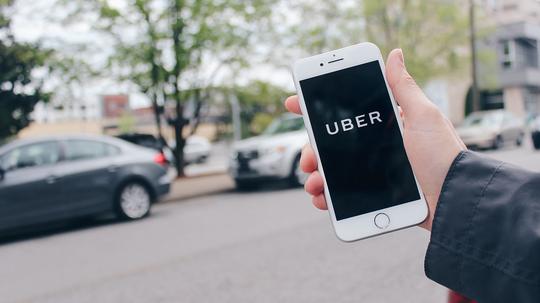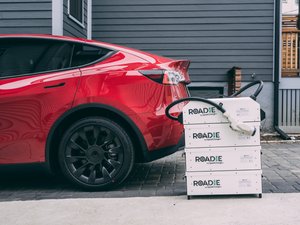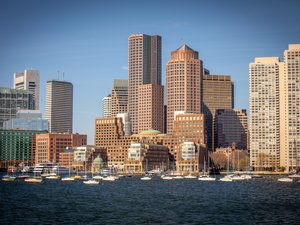
Uber and other ride-hailing drivers will go on strike Wednesday, May 8 ahead of Uber’s $90 billion IPO. In Massachusetts, the Boston Independent Drivers Guild is calling for a shutdown, and protesters are expected to convene at the Uber Greenlight Hub in Saugus at noon.
The drivers’ demands include transparency in how fares are broken down, a driver representative on Uber’s board, regulatory standards around issues like carbon emissions and traffic data, and above all, better wages. A recent study found that median hourly pay with tip for Uber drivers in the US is just $14.73—above the minimum wage in Boston, but below it in cities like San Francisco and New York.
The timing of the strike coincides with Uber’s long-awaited IPO, which is planned for Friday, May 10. But organizers say that’s just strategic timing; the shutdown goes far beyond just one company.
“Yes, this strike is directed at Uber, but an injury to one is an injury to all,” said Patrick, a Lyft driver in Brighton who asked that his last name not be disclosed for privacy reasons. “Uber is just the belle of the ball right now because they’re heading into their public offer. All TNC companies are exploiting their workers in the same way. They are claiming to be a software developer instead of an employer.”
Uber, Lyft, and their ilk have long maintained that their drivers are contractors, leading people to accuse the company of handing off responsibility. That tension was the subject of a class action lawsuit in California, which Uber paid $20 million to settle in March.
Ride-hailing companies are no stranger to protests, either. Just last month, drivers in Los Angeles planned a 25-hour strike to protest recent pay cuts, and protesters have congregated outside Uber’s San Francisco headquarters numerous times—last year resulting in some physical violence. But this might be the most widespread protest to date, with drivers reportedly striking in at least eight US cities, plus London and Scotland.
The companies’ fare structure is stacked against drivers, said Patrick. Say, for example, you accept a fare from Boston to Saugus. “You’re getting paid for all the time there’s a rider in your car, but once you drop them off in Saugus, nobody’s trying to get a Lyft in Saugus,” he said. “That’s 40 minutes back to Boston on your own dime. That’s damage to your car. That’s time that you’re allegedly working that you’re not getting paid.”
Some Lyft and Uber users—not drivers, but people who ride in the shared cars frequently—will not be using the apps on Wednesday out of solidarity. One of those is Gaby Yeshua, a mentor lead at Boston-based startup Mentor Collective. In fact, Yeshua has been personally boycotting Uber for about two years because of the company’s “questionable social and business decisions.”
“I’ve heard from multiple drivers and seen news reports that Uber has slashed money for drivers, they’ve provided inadequate responses to sexual harassment complaints,” Yeshua said. “I find that they have a pretty startling lack of workers’ rights. So all of these things led me to delete my account and remove the app from my phone originally. That decision has only been strengthened since then.”
Yeshua estimates that a little under half of her network is also on such a personal boycott. She’s been sharing news about the upcoming strike on social media and with relatives to spread the word.
Not all drivers feel they’ve been slighted by the software companies that contract them, though. Chris Hadrick, a skater in Boston who drives part-time, told me in a direct message on Twitter that “uber is a godsend.”
“Uber's flexibility is the big draw. Tomorrow I might skate all day or I might skate and work for half the day. I have no idea. Depends on the weather and how I feel,” he wrote. “This last week I worked 27.5 hours and made $800. Call me crazy but that seems very fair.”
Hadrick, who told me the rate he earned last week was relatively consistent, makes about $29 an hour. But not every driver has had such a good experience. Patrick has only been driving for Lyft for about seven months, and he has already seen his wages drop dramatically.
“I started in October, and in November, the rates fell,” Patrick said. “I had been aware that the rates were going down nationally, but this was a big one. … People were pissed about this one. I think in November, it was like, okay, this is happening now.”
Drivers have historically had difficulty organizing. The Independent Drivers Guild has been around since 2016, mostly in New York City, but according to Patrick, Lyft and Uber monitor driver networks like online groups, making it difficult for drivers to keep in touch with each other in secret. That means organizing for the upcoming strike in Boston was conducted like “an old-fashioned whisper campaign,” getting riders to talk to drivers and vice versa during trips.
Asked for comment, a Lyft spokesman sent the following statement: "Lyft drivers’ hourly earnings have increased over the last two years, and they have earned more than $10B on the Lyft platform. Over 75 percent drive less than 10 hours a week to supplement their existing jobs. On average, Lyft drivers earn over $20 per hour. We know that access to flexible, extra income makes a big difference for millions of people, and we’re constantly working to improve how we can best serve our driver community."
Uber did not respond to request for comment but issued the following statement to Business Insider: "Drivers are at the heart of our service─we can't succeed without them─and thousands of people come into work at Uber every day focused on how to make their experience better, on and off the road. Whether it's more consistent earnings, stronger insurance protections or fully-funded four-year degrees for drivers or their families, we'll continue working to improve the experience for and with drivers."
No matter the strike's outcome, organizers will stay on the case.
"Obviously, we're not going to stop driving," Patrick said. "I don't imagine that TNC companies everywhere are going to see the light and go on the straight and narrow and pay everyone minimum wage and recognize us as employees. I hope we'll continue to work on protecting the rights of the workers."








